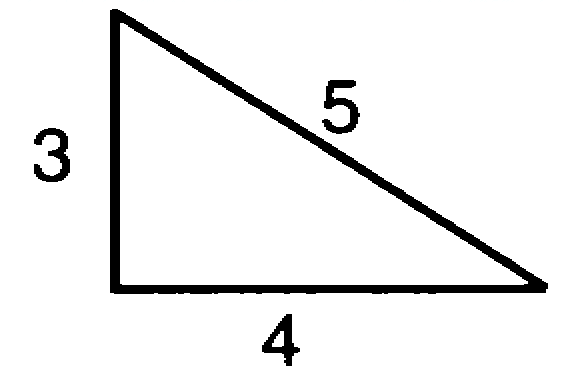
Math AOK Web Page
LJA TOK
Welcome to my AOK website on Math. I will be going over a unit question as well as a great many other things regarding the ever popular field of Math.



BIG WIG
Albert Einstein
Everyone knows Albert Einstein and knows his theories and how we have come to accept them as truth. He has developed one of the most influential equations of all time, which is: E = MC ^ 2
Though during part of his life people thought of him as crazy and making up false equations, most of them are widely known nowadays, and even this equation can be derived from reason, but the real proof of things math being reduced to reason dates way back to the Egyptians, who have the best example
LINKING QUESTION
How do we come to accept mathematical "discoveries" as truth?
To accept mathematical discoveries as truth, they must be put into a theory in which every single rule and equation can fit into it and still apply. Therefore the more time goes on the harder it is to come up with a new theory. We have accepted gravity as truth because it repeatedly happens, but now we put a mathematical equation to it and now we have proved that gravity exists. We come to accept mathematical discoveries as truth through intense repeated experiments and proper theories.
GUIDING QUESTION
Can mathematics be reduced to reason?
Throughout history people have always argued over math and if it is all made up to fit a situation of if it can actually be reduced to reason. Over time we have gathered more and more evidence that suggest that mathematics was derived from reason, and therefore can be reduced back down to reason. This is most prominent in ancient cultures, especially Ancient Egypt. Pythagoras also had some influence on this as well.
Luke's AOK Math Website
SIGNIFICANT CONCEPT
- Mathematics, which can be defined as “the science of rigorous proof”, begins with axioms and uses deductive reasoning to derive theorems.
This can be seen in all of the work don by famous mathematicians, such as Pythagoras and Fibonacci, as well as many others. Each equation and idea started with a smaller concept that was built off of it. a^2 + b^2 = c^2 didn't just come out of thin air. Pythagoras had to have had a basic concept and then use deductive reasoning in order to develop this widely known and used formula.
This all began when Pythagoras went to Egypt to further his knowledge and study as a scholar. He began his studies with Egyptian "rope-stretchers" who were the engineers that worked on building the pyramids. They used a secret technique in which they used a twelve knotted rope to make a perfect right triangle. Keep in mind this is a cultural thing and nowhere else in the world was this method used or even known, and nobody knew the significance behind it except the Egyptians. They would peg these ropes into the ground in a 3-4-5 triangle formation, in which one side had 3 knots, one had 4, and one have 5. Such as the one displayed below. He was fascinated by this and went on to study this subject more, and find out why this was true. From there he drew squares from each side of the triangle, and found out that the area of the two small squares added together to make the area of the big square. This is shown to the right of the basic 3-4-5 triangle below. He then tested it with other numbers and found that you can create a perfect right triangle using this formula. This is how a^2 + b^2 = c^2 came about, and it came about through deductive reasoning, therefore proving mathematics can be reduced to reason. One could consider Pythagoras's work a big knowledge claim that was justified through research and experimentation


Analytic dictionary definition:
Adjective
True by virtue of the meaning of the words or concepts used to express it, so that its denial would be a self-contradiction.
(of a language) Tending not to alter the form of its words and to use word order rather than inflection or agglutination to express...
Of or relating to analysis is also a definition, and that is what I most commonly think of as. An analytic approach is one where the object in question is being analyzed for further purpose.
TO KNOW VOCABULARY WORD: Analytic
Knowledge Issues in Math
One knowledge issued inspired by the Egyptian story above is why are mathematics so drastically different between cultures, and why are they held in different values? For example, some cultures decided to advance math more than others, what is the reasoning behind that? Also in today's society, countries like Japan hold math with extreme value, and kids are taught it from an extremely young age and through rigorous education, where some cultures of equal wealth decide to focus on other areas. What reason do some cultures have to focus more on math than others? What is the benefit?
Also using the Egyptian example, how has technology advanced our understand of mathematics? Back then they used ropes and knots to find out abut a right triangle, when nowadays we have calculators and graphs that are able to do those things for us. I believe that math will advance at an exponential rate, because the tools we have now can do the same things that were done back in the day, but one million times faster, and therefore math can advance that much faster. But with all things, it will plateau eventually.
Finally, what can math not teach us? Can math teach us everything? Can there be an equation for everything? Some people like to call it the language of the universe, is this true? I believe so because throughout history and in all different field of life, math can be used to great extent. Every academic subject learned in school can have math applied to it, and vice versa. It seems as if everything revolves around mathematical concepts and theories, but then specialized and zoomed in on certain areas. But I would agree that it is the language of the universe. What do you think?
Multiple Perspectives
Different cultures have different perspectives on Math.
For example, in America it is taught at all schools and we advance one level each year, that is the standard for us and when hearing that we all think "well that makes sense", but does it?
Every culture has a different sense of mathematical significance because of the environment they are set in. In a country or culture where there is no use for mathematics, or less use, it is not taught as rigorously, and they have different customs.
In countries like Japan, math is held much more highly due to the fact that they are an older nation, and thrive purely through business. They outsource most things, and require mathematics to do basic things for them. That is why most of their courses are extremely advanced and blow American courses out of the water.
Different cultures have different perspectives on math due to the relativity of the subject in their culture.
Paradigm Shift
Math has had an extreme paradigm shift throughout history. Sir Isaac Newton was one of the people who set the shift in motion. Beforehand mathematics had few theories to go by and went off of pure reasoning and memorized formulas rather than known theories and famous mathematicians. After Isaac Newton put his famous theories into the brewing pot, mathematics took off. Everyone realized that this theories were true and were made from common sense, and every mathematical equation since then have been based off of it.
Let's look simply at the past, present and possible future.
Past: Egyptian Right Triangle was amazing, Pythagoras considered genius.
Present: Albert Einstein gave us many equations and famous theories still used.
Future: We have recently discovered much more about math, such as the speed of light and particles in general. I believe through further experimentation and study this could launch a new shift in mathematics and begin to propel it forward again.
ABOUT ME
My name is Lucas Shaunnessy, a 18 year old boy in a small highschool. I fancy mathematics because of its logical concepts and how they relate to my own personal values and beliefs. I believe logic beats all. I also enjoy theatre, acting, directing, etc. I think it's great fun and a good place to be illogical and have fun with it, to get away from my over logical behavior. I have acted in numerable plays and also directed a few. I'd like to believe I'm fairly smart and that academics are my strong point. I enjoy paddling 6 man hawaiian outrigger canoes for exercise and have recently finished building a canoe for the school's team. I'd enjoy pursuing business or theatre as a career.
WORKS CITED
"Basic Math in Japanese | The Japan Guy." The Japan Guy. N.p., n.d. Web. 08 Jan. 2013.
Ernest, Paul. Paradigm Shift in the Mathematic Equation. University of Exeter United Kingdom, n.d. Web. 05 Jan. 2013.
"Japan Math, Math in Japan, Japanese Mathematics, Japanese Math Methods, Japanese Abacus,." Japan Math, Math in Japan, Japanese Mathematics, Japanese Math Methods, Japanese Abacus,. N.p., n.d. Web. 08 Jan. 2013.
"Newton." Newton. N.p., n.d. Web. 06 Jan. 2013.
The Paradigm Shift in Mathematics. The Mathematics Educator, 2005. Web.
"SANGAKU." SANGAKU. N.p., n.d. Web. 07 Jan. 2013. <http://www.wasan.jp/english/index.html>.
Stewart, Ian. JSTOR. N.p., n.d. Web. 05 Jan. 2013.